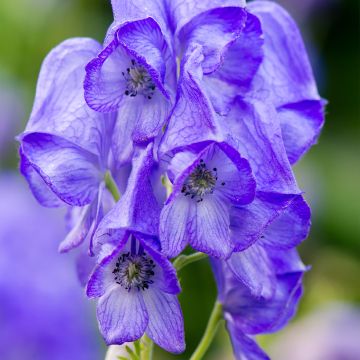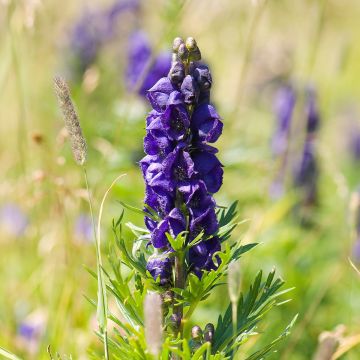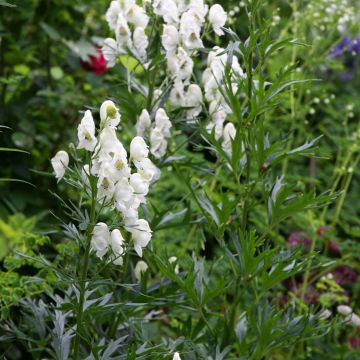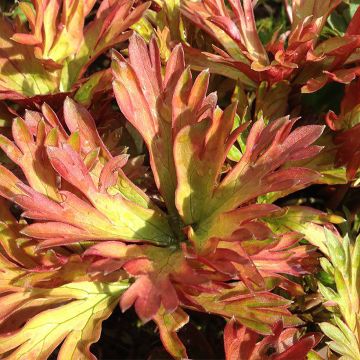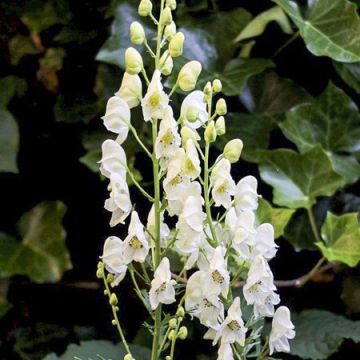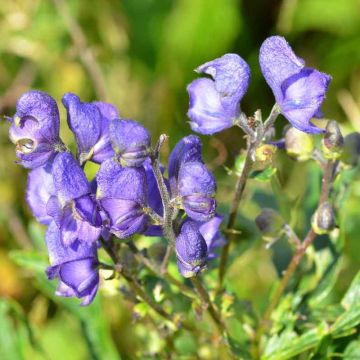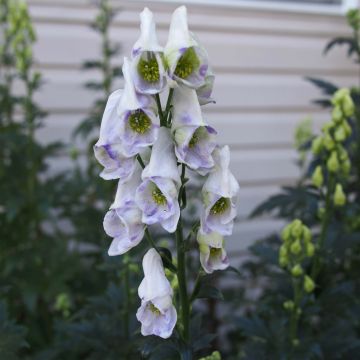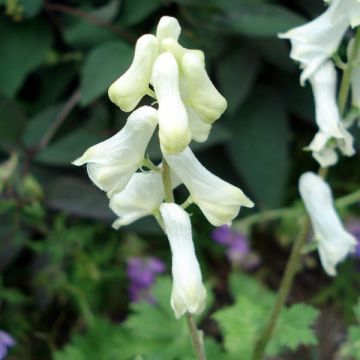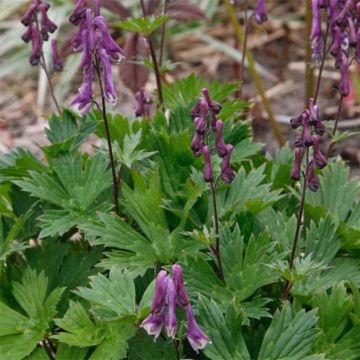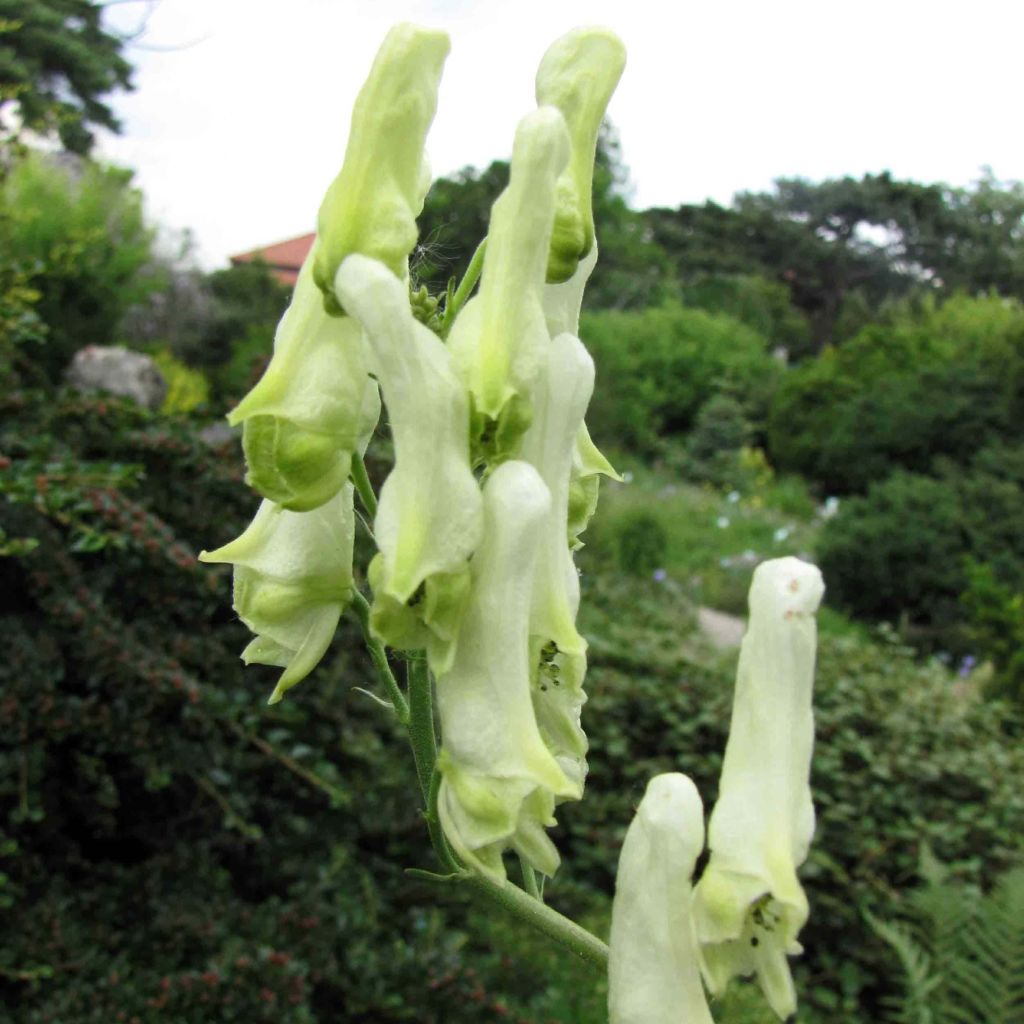

Aconitum lamarckii
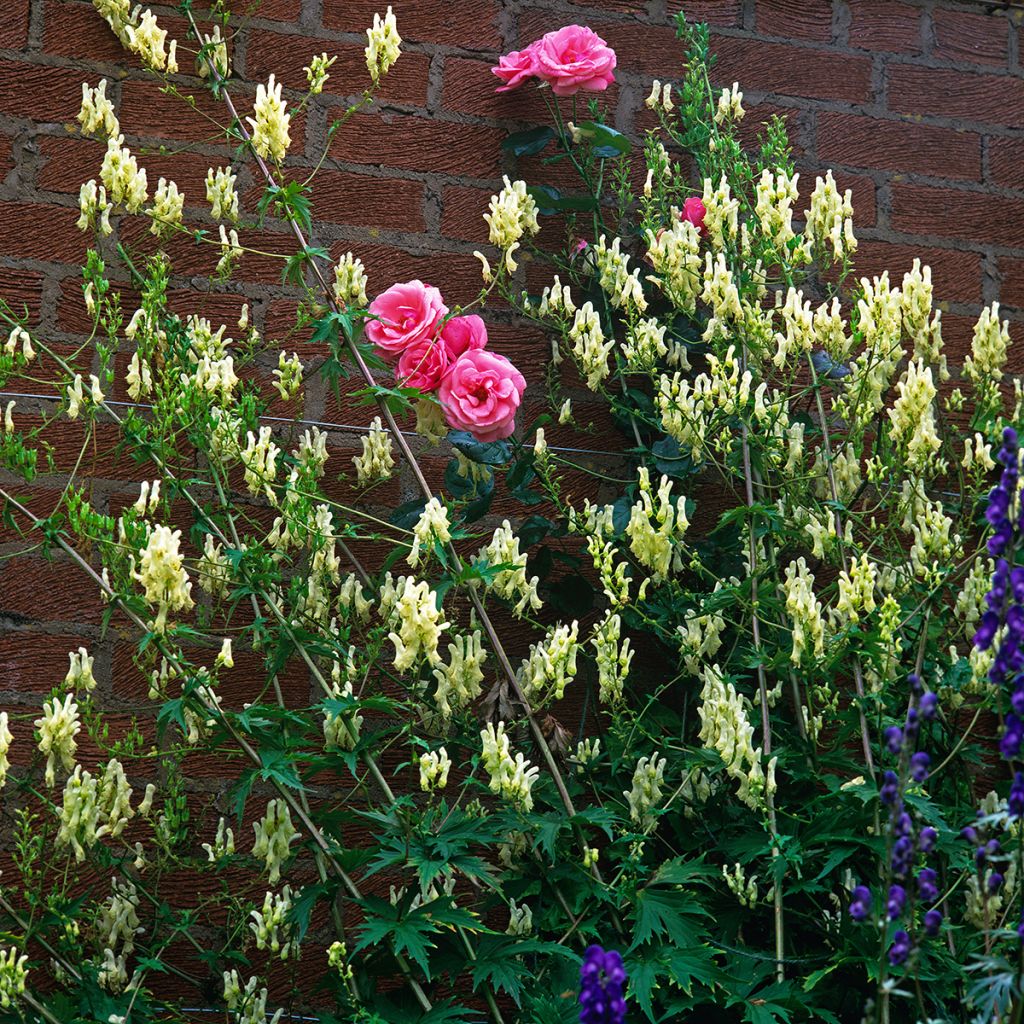

Aconitum lamarckii
Aconitum lamarckii
Aconitum lamarckii
Neapolitan wolf's bane.
Special offer!
Receive a €20 voucher for any order over €90 (excluding delivery costs, credit notes, and plastic-free options)!
1- Add your favorite plants to your cart.
2- Once you have reached €90, confirm your order (you can even choose the delivery date!).
3- As soon as your order is shipped, you will receive an email containing your voucher code, valid for 3 months (90 days).
Your voucher is unique and can only be used once, for any order with a minimum value of €20, excluding delivery costs.
Can be combined with other current offers, non-divisible and non-refundable.
Home or relay delivery (depending on size and destination)
Schedule delivery date,
and select date in basket
This plant carries a 12 months recovery warranty
More information
We guarantee the quality of our plants for a full growing cycle, and will replace at our expense any plant that fails to recover under normal climatic and planting conditions.
Would this plant suit my garden?
Set up your Plantfit profile →
Description
Aconitum lamarckii, also known as Lamarck's Aconite, is a rather unique montane species with pale yellow helmet-shaped flowers, unlike most Aconites which are blue or white. It is a highly ornamental perennial plant, both for its aerial flowering and its beautifully cut foliage, forming a dense tuft. This plant thrives in cool and rich soils, making it a reliable and floriferous shade-loving plant, perfect for filling the back of perennial borders.
Found near small streams and in damp Pyrenean and Alpine meadows, Lamarck's Aconite, also known as Aconitum lycoctonum subsp. neapolitanum, is an herbaceous perennial plant in the buttercup family, just like its cousin the Delphinium. This plant develops in spring from a fleshy tuberous stump, from which emerges in spring a 50cm (20in) wide upright tuft, with sparsely hairy stems and coriaceous nearly spherical leaves divided into 7 to 8 elongated lobes. The leaves have deep veins and are a very dark green colour, with a shiny surface. In July-August, at the top of the floral stems reaching a height of 90cm (35in) to 1m (3ft), spikes adorned with downward-facing helmet-shaped flowers in a pale greenish-yellow colour, bloom.
Aconites suffer from a bad reputation due to their legendary toxicity, which is unfortunate because they deserve a place in every garden, in cool soils. They are robust and very hardy, and their foliage is among the most beautiful among perennial plants. They are perfect in the back of borders, alongside foxgloves and baneberries, for enchanting shaded summer scenes. They can be planted among bushes, sheltered from the wind that sometimes bends their stems, alongside Japanese anemones that will take over after their flowering. They also look beautiful in front of the purple foliage of Physocarpus or Cotinus 'Royal Purple'. They are good perennials, like foxgloves, for light and cool woodland areas. Finally, their flowers are magnificent in bouquets.
Report an error about the product description
Aconitum lamarckii in pictures
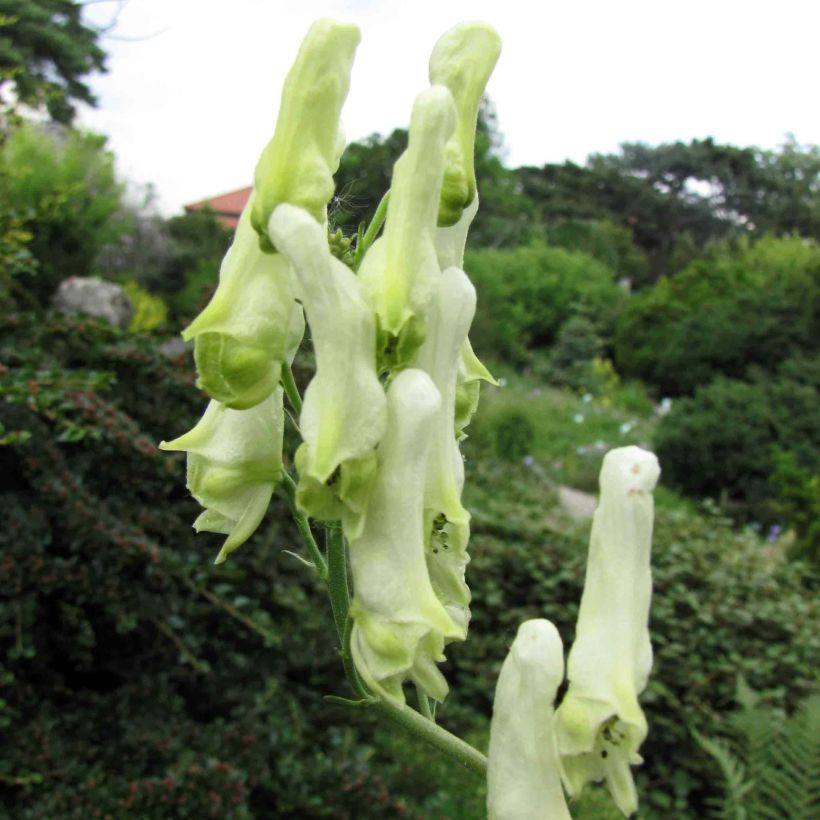

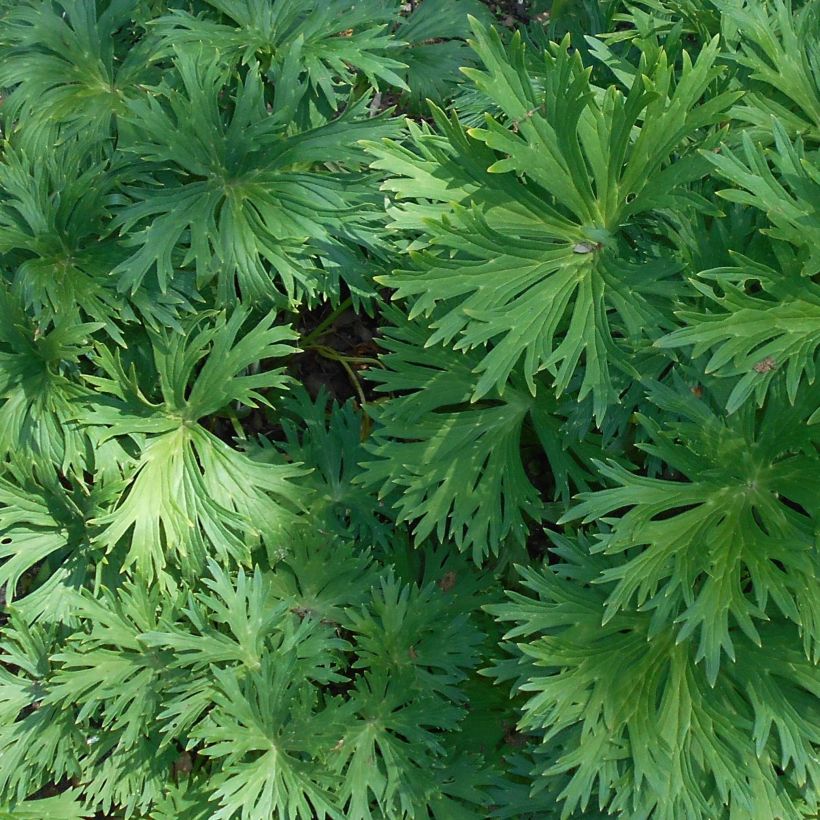

Flowering
Foliage
Plant habit
Safety measures
Botanical data
Aconitum
lamarckii
Ranunculaceae
Neapolitan wolf's bane.
Aconitum lycoctonum subsp. neapolitanum
Western Europe
ingestion
Cette plante est toxique si elle est ingérée volontairement ou involontairement.
Ne la plantez pas là où de jeunes enfants peuvent évoluer, et lavez-vous les mains après l'avoir manipulée.
Pensez à conserver l'étiquette de la plante, à la photographier ou à noter son nom, afin de faciliter le travail des professionnels de santé.
Davantage d'informations sur https://plantes-risque.info
Other Aconitum
View all →Planting and care
Aconites thrive in light undergrowth, in a sheltered position away from strong winds. Lamrck's Aconite appreciates a deep, cool, ordinary soil. It prefers shaded conditions and tolerates the sun, but the soil must then be constantly moist and never dry out. For this reason, it is recommended to use mulch in summer to maintain a certain freshness. The soil that welcomes it will be enriched with compost and turf, which will give it a slight acidity. Stake the tallest flower spikes to prevent them from bending. Caution, Aconite is toxic: wash your hands after picking or touching it.
Planting period
Intended location
Care
This item has not been reviewed yet - be the first to leave a review about it.
Haven't found what you were looking for?
Hardiness is the lowest winter temperature a plant can endure without suffering serious damage or even dying. However, hardiness is affected by location (a sheltered area, such as a patio), protection (winter cover) and soil type (hardiness is improved by well-drained soil).

Photo Sharing Terms & Conditions
In order to encourage gardeners to interact and share their experiences, Promesse de fleurs offers various media enabling content to be uploaded onto its Site - in particular via the ‘Photo sharing’ module.
The User agrees to refrain from:
- Posting any content that is illegal, prejudicial, insulting, racist, inciteful to hatred, revisionist, contrary to public decency, that infringes on privacy or on the privacy rights of third parties, in particular the publicity rights of persons and goods, intellectual property rights, or the right to privacy.
- Submitting content on behalf of a third party;
- Impersonate the identity of a third party and/or publish any personal information about a third party;
In general, the User undertakes to refrain from any unethical behaviour.
All Content (in particular text, comments, files, images, photos, videos, creative works, etc.), which may be subject to property or intellectual property rights, image or other private rights, shall remain the property of the User, subject to the limited rights granted by the terms of the licence granted by Promesse de fleurs as stated below. Users are at liberty to publish or not to publish such Content on the Site, notably via the ‘Photo Sharing’ facility, and accept that this Content shall be made public and freely accessible, notably on the Internet.
Users further acknowledge, undertake to have ,and guarantee that they hold all necessary rights and permissions to publish such material on the Site, in particular with regard to the legislation in force pertaining to any privacy, property, intellectual property, image, or contractual rights, or rights of any other nature. By publishing such Content on the Site, Users acknowledge accepting full liability as publishers of the Content within the meaning of the law, and grant Promesse de fleurs, free of charge, an inclusive, worldwide licence for the said Content for the entire duration of its publication, including all reproduction, representation, up/downloading, displaying, performing, transmission, and storage rights.
Users also grant permission for their name to be linked to the Content and accept that this link may not always be made available.
By engaging in posting material, Users consent to their Content becoming automatically accessible on the Internet, in particular on other sites and/or blogs and/or web pages of the Promesse de fleurs site, including in particular social pages and the Promesse de fleurs catalogue.
Users may secure the removal of entrusted content free of charge by issuing a simple request via our contact form.
The flowering period indicated on our website applies to countries and regions located in USDA zone 8 (France, the United Kingdom, Ireland, the Netherlands, etc.)
It will vary according to where you live:
- In zones 9 to 10 (Italy, Spain, Greece, etc.), flowering will occur about 2 to 4 weeks earlier.
- In zones 6 to 7 (Germany, Poland, Slovenia, and lower mountainous regions), flowering will be delayed by 2 to 3 weeks.
- In zone 5 (Central Europe, Scandinavia), blooming will be delayed by 3 to 5 weeks.
In temperate climates, pruning of spring-flowering shrubs (forsythia, spireas, etc.) should be done just after flowering.
Pruning of summer-flowering shrubs (Indian Lilac, Perovskia, etc.) can be done in winter or spring.
In cold regions as well as with frost-sensitive plants, avoid pruning too early when severe frosts may still occur.
The planting period indicated on our website applies to countries and regions located in USDA zone 8 (France, United Kingdom, Ireland, Netherlands).
It will vary according to where you live:
- In Mediterranean zones (Marseille, Madrid, Milan, etc.), autumn and winter are the best planting periods.
- In continental zones (Strasbourg, Munich, Vienna, etc.), delay planting by 2 to 3 weeks in spring and bring it forward by 2 to 4 weeks in autumn.
- In mountainous regions (the Alps, Pyrenees, Carpathians, etc.), it is best to plant in late spring (May-June) or late summer (August-September).
The harvesting period indicated on our website applies to countries and regions in USDA zone 8 (France, England, Ireland, the Netherlands).
In colder areas (Scandinavia, Poland, Austria...) fruit and vegetable harvests are likely to be delayed by 3-4 weeks.
In warmer areas (Italy, Spain, Greece, etc.), harvesting will probably take place earlier, depending on weather conditions.
The sowing periods indicated on our website apply to countries and regions within USDA Zone 8 (France, UK, Ireland, Netherlands).
In colder areas (Scandinavia, Poland, Austria...), delay any outdoor sowing by 3-4 weeks, or sow under glass.
In warmer climes (Italy, Spain, Greece, etc.), bring outdoor sowing forward by a few weeks.






























